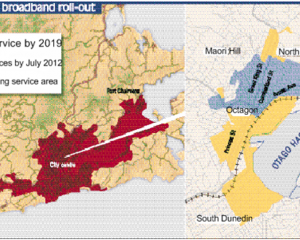The decision by the Commerce Commission to reduce mobile termination rates (MTR) meant 2degrees, and any subsequent new operators, were likely to gain new customers.
"The attractiveness of Telecom and Vodafone could be harmed by their reluctance to reduce costs."
There was a powerful incentive for the big players to keep fees as high as possible, he said.
They counted on inertia to maintain their customer base and extract super-normal profits from the market.
Inertia might keep much of the existing customer base but it would not attract the new customers that were vital to maintaining market position.
The threat to Telecom and Vodafone was not so much that their existing customers would defect, Prof Wright said. Existing users could be hard to budge as they could be reluctant to leave behind a network of friends using the same provider - all of whom benefit from network specific deals.
"The danger for anybody who doesn't drop their price is rather that they will fail to acquire new customers, leading to erosion of their market share over time. It's like a leaky bucket - if you don't keep filling it up, it will eventually wind up empty," Prof Wright said.
Craigs Investment Partner Chris Timms said the beneficiaries of the commission's decision were the local retail service providers without mobile networks, such as Orcon, CallPlus and WorldxChange.
Arguably, one of the most profitable elements of their retail offering was calls from landlines to mobiles, for which they currently received 30c per minute and paid 14c per minute . Their cost of sale just reduced by 50%.
"While we expect a gradual reduction in the retail call rates over time, we don't expect retail service providers to be in a hurry to pass on the benefit."
Telecom was understood to be a net payer of MTR to Vodafone of about $20 million. In the short term, Telecom was a beneficiary, but longer term it was a negative, as lower retail rates drove substitution from high-margin fixed line services to lower margin mobile services.
Mr Timms said 2degrees was now the marginal price setter of mobile calling rate as the company had halved the rate to call any network any time with its $30 plan providing 100 minutes (30c per minute), which compared with Telecom's equivalent XT product that provided 50 minutes (60c per minute).
With the MTR now at 7.48c per minute, 2degrees and other retail service providers had the ability to offer further disruptive products potentially offering retail rates of about 15c per minute to any mobile any time in New Zealand.
"Their initial reaction has been that MTR reductions are already factored into their retail pricing. However, given their relative market share position [10%] and the commission's decision, they arguably have an additional lever to compete," Mr Timms said.
CallPlus and Slingshot chief executive Mark Callander said from Auckland most New Zealanders would be hard pressed to understand their current mobile plan and how much they were really paying.
"That is exactly what the larger mobile providers have designed for them."
CallPlus and Slingshot offered one of the lowest mobile plans in the market with a low single flat rate, regardless of who or where customers were calling in New Zealand. The plans were much cheaper than the rates of the larger companies, he said.
Consumers would benefit from the change in MTR with the chance to save money but they needed to look at the offerings of some of the smaller companies which had a track record of offering the best deals around, he said.
Many consumers and businesses thought that changing providers was complex but CallPlus and Slingshot switched over 50,000 customers a year, which amounted to millions of dollars saved.
"Competition only works if the customers are prepared to shop. I have no doubt that if people do their homework and are prepared to switch providers, they can get significant savings - as much as 30% to 40% based on what they are currently paying as a result of this regulation," Mr Callander said.
TelstraClear late yesterday said it was cutting its residential mobile-to-mobile call rate by a third to 19c per minute for new and existing customers.
Chief executive Allan Freeth said it was providing the benefits of the new pricing issued by the commission even before it received the benefit of lower costs itself.
Explanation
Mobile termination rates are fees mobile network operators charge for calls and texts on rival networks. From yesterday, texting charges will drop to less than a cent, when previously they cost nearly 10c. Call rates will drop from 17c to less than four cents in April 2012.



